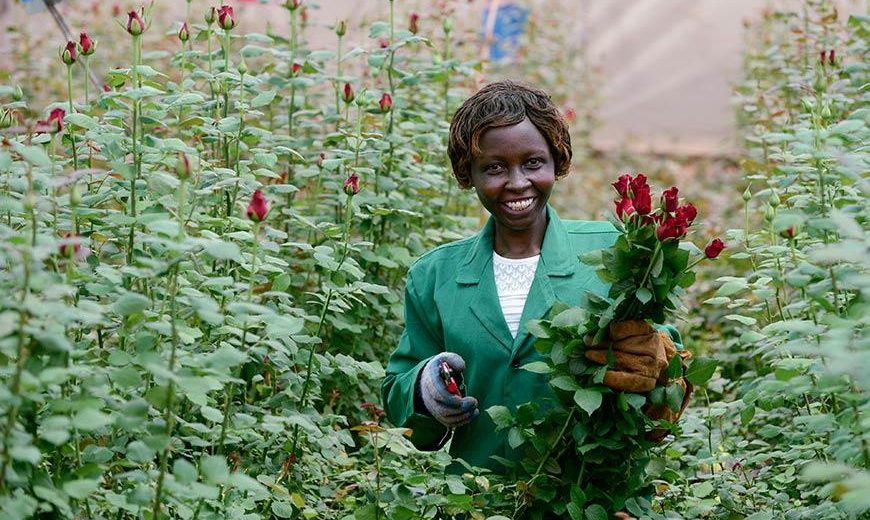Flowers and plants
Often the go-to gift to brighten someone’s day, flowers are universally admired for their beauty. Flowers are also a huge industry, with production in places as diverse as Ecuador, Kenya, the Netherlands, and Sri Lanka.

Image © Joerg Boethling
Fairtrade began certifying flowers in 2001, and they’ve grown into one of the most prominent Fairtrade products.
Choosing Fairtrade flowers and plants makes a difference
Most flowers and plants are grown on large estates. As a result, they are among the only Fairtrade products to be exclusively sourced from plantations with hired workers, rather than small-scale farms. Fairtrade’s Hired Labour Standard establishes criteria that aim to improve working conditions on plantations and gives workers a stronger voice with plantation management.
Since 2014, Fairtrade also certifies plants from propagation farms. On these farms, Fairtrade workers cultivate mother plants and harvest cuttings from them. These young plants can then be sold to Fairtrade certified traders, who continue growing them in plant nurseries and market gardens that are located closer to consumer markets.
Fairtrade flowers grow in naturally heated and lit greenhouses due to the abundant heat and sunlight in the source countries. This results in these flowers having a lighter carbon footprint on average than those grown under artificial heat and light in temperate countries, even when factoring in transport.
Fairtrade empowers flower workers in a number of ways:
You buy flowers and plants as a symbol of life and love. Why not choose flowers that also aim to improve the livelihoods of the people behind the bouquet?

Image © Didier Gentilhomme
What is the Fairtrade premium?
The Fairtrade Premium is an extra sum of money paid on top of the selling price that farmers or workers invest in projects of their choice.
They decide together and democratically how to spend the Fairtrade Premium to reach their goals, such as improving their farming, businesses, or health and education in their community. Farmers and workers know best what their priorities and needs are.
Since 2014, Fairtrade farmers and workers have received well over half a billion euros in Fairtrade Premium.
This is a unique benefit enabled by your decision to buy Fairtrade products.
Looking for Fairtrade Products?
Fairtrade products are widely available. The blue countries and territories on the map below have Fairtrade organizations that promote Fairtrade products. Their websites often include a product finder to show you the full variety of Fairtrade products near you. Even if there isn't a Fairtrade organization where you live, Fairtrade products may still be available – look for our familiar marks on products!